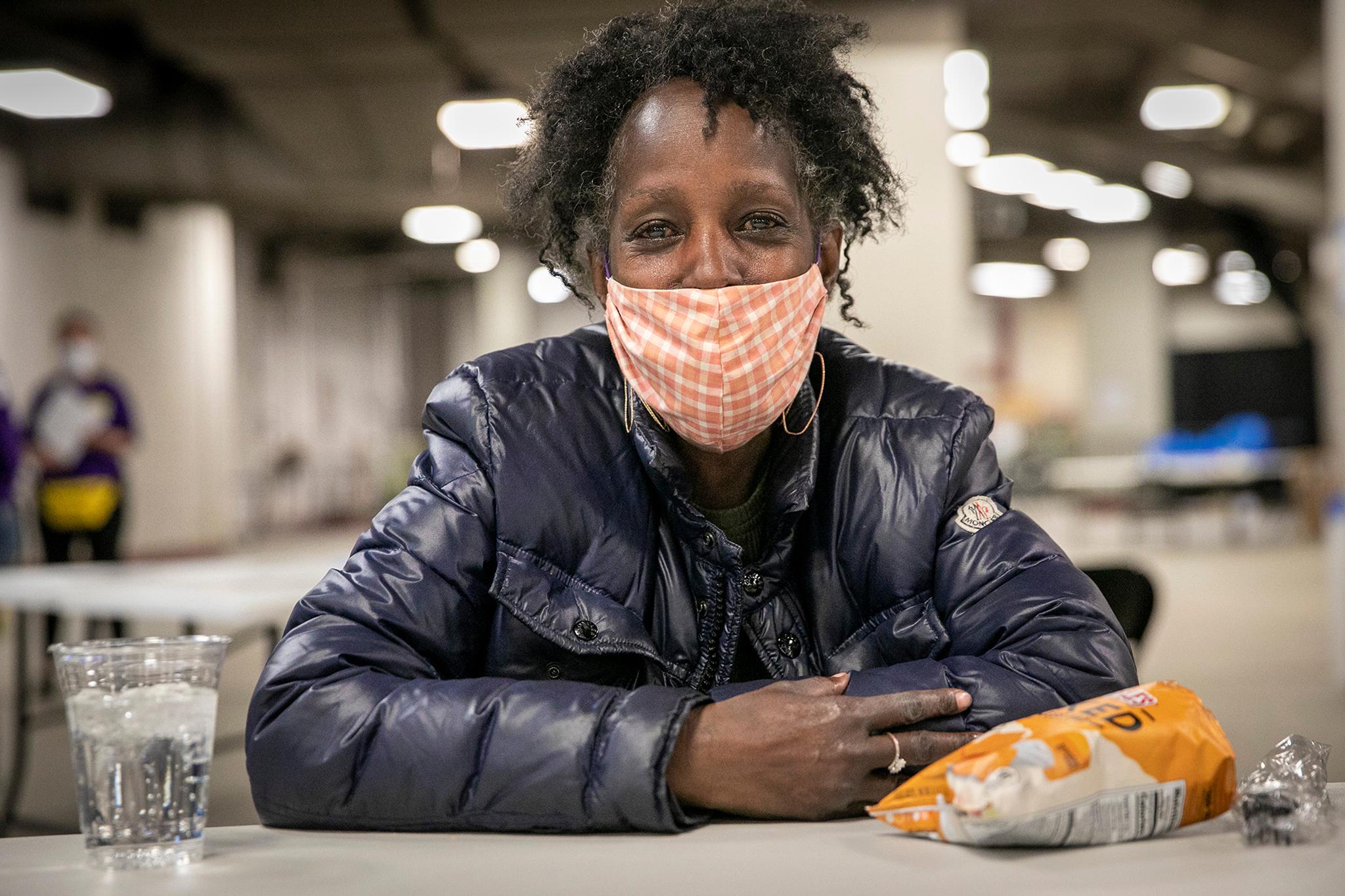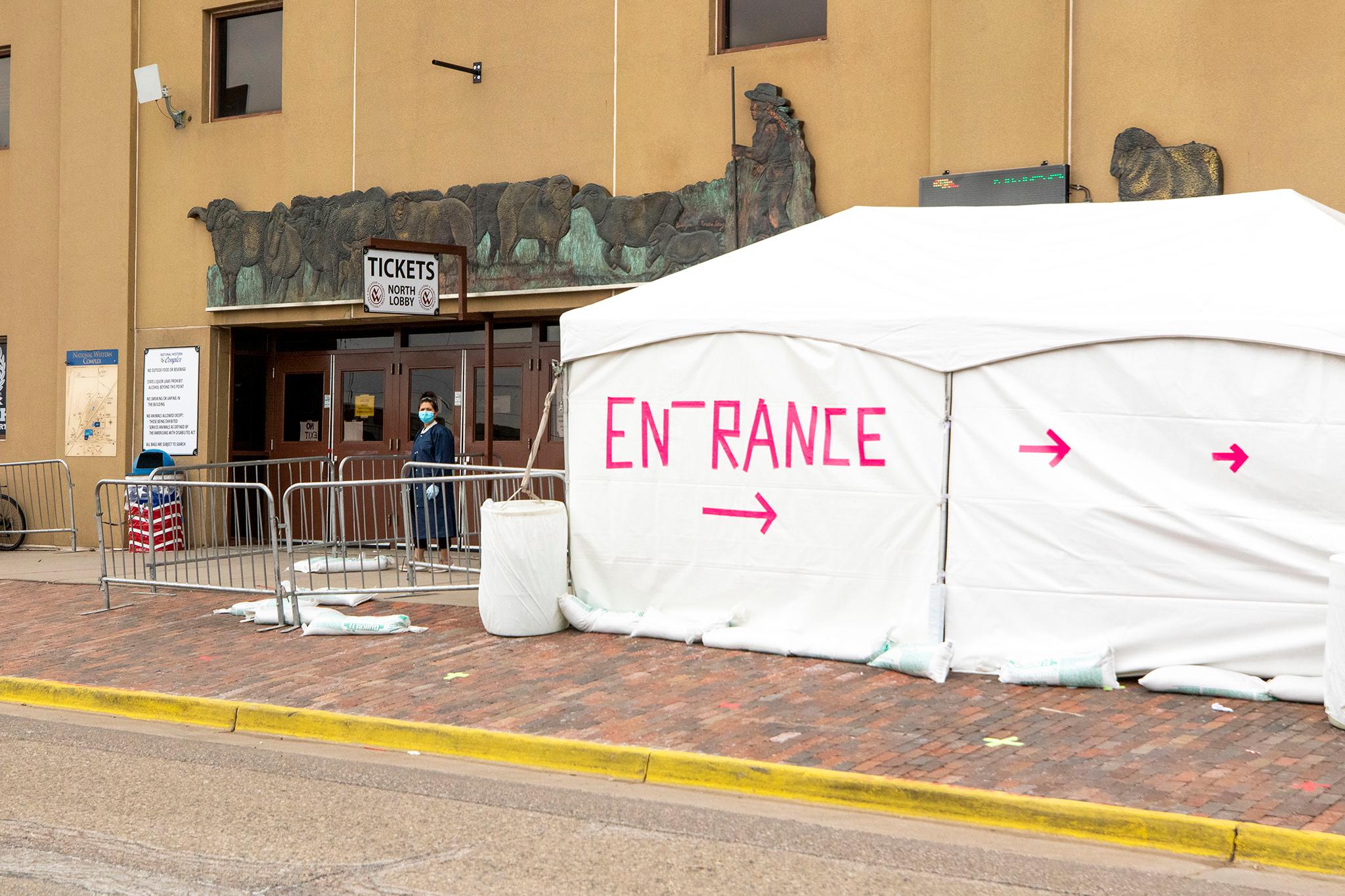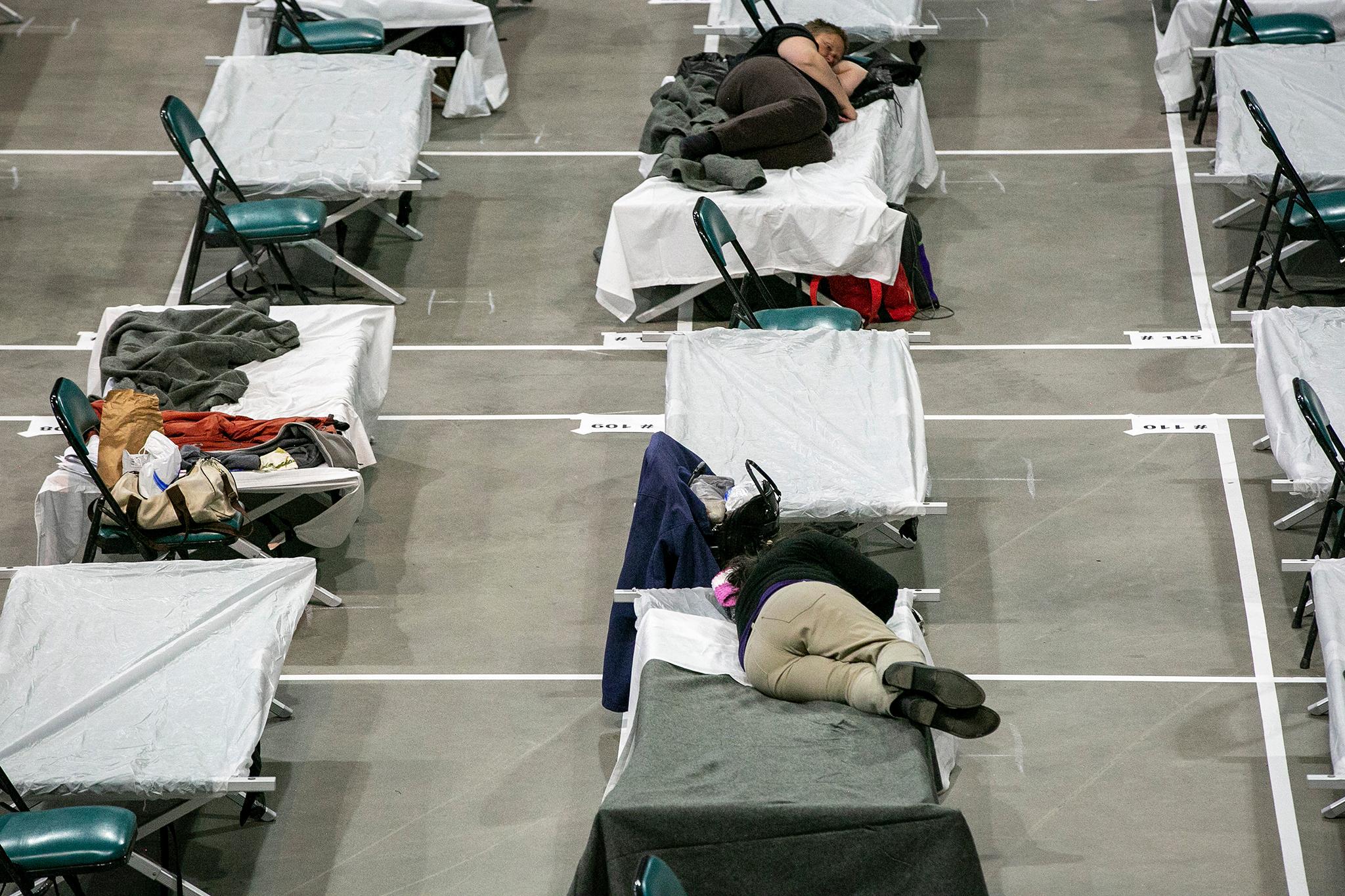Updates with the city saying it expects to spend a total of about $9.6 million on the new shelters through June.
Jeannetta Simmons, a 61-year-old retired nurse's aide, was among the first to shelter from the novel coronavirus at the Denver Coliseum.
Simmons, who has had no home of her own for three months, welcomed the change from a Catholic Charities of Denver shelter where she'd been staying downtown. There, she said, women were "in little rooms, like sardines."
Catholic Charities and other shelter providers had been pressing for a facility where they could provide people experiencing homelessness more personal space. The Centers for Disease Control and Prevention has advised that in order to prevent the spread of COVID-19, the disease caused by the new coronavirus, homelessness services providers should allow a minimum of six feet between the heads of people on mats or cots in sleeping areas. Denver shelter providers say that was impossible until the opening on Monday of the shelter for women at that Coliseum and a shelter for men in a nearby National Western Complex building that opened April 9. At the new shelters, the six-feet-between-heads rule is met by having people sleep head-to-toe.

Before the pandemic, homeless shelters were only open at night. People experiencing homelessness would hangout at Denver's de facto day shelters -- libraries and rec centers -- to take showers or simply find some entertainment during the day. But they closed at the start of the pandemic to curb the spread of the virus.
The new shelters are also open around the clock and are equipped with portable showers. But these shelters are only temporary. While the city hasn't determined when they will close, events will eventually return to the National Western Complex and Denver Coliseum.
Britta Fisher, the city's chief housing officer, didn't offer details at a press conference on Monday on how long the new shelters would be operating, saying an "exit strategy is something that we continue to discuss." But a city order is expected to extend a ban on the kind of large entertainment and sports gatherings usually hosted at the National Western Complex and the Coliseum. And a $2.5 million city agreement with a contractor providing laundry and custodial services for the shelters extends through the end of June.
Stephanie Miller, CEO of The Delores Project, said she hoped the new shelters would be able to operate until the coronavirus outbreak had been quelled.
"I think the 24-7 model is fantastic," she said. "If it wasn't for this space, there would be no 24/7 women's shelter" in Denver.
The Coliseum can accommodate 300 women on cots arranged in a grid under the electronic display board that at other times might display a high school basketball score. On Tuesday, the board displayed the lunch schedule.
Miller's nonprofit, which has its own shelter for women, other providers, and the city are helping Catholic Charities staff the Coliseum. The Colorado Coalition for the Homeless is providing medical care, including testing for COVID-19, for women at the Coliseum and men at the National Western Complex.
On Tuesday while checking women into the shelter, Miller glanced at her computer and said 141 had stayed at the Coliseum overnight, and three who had come to check in were instead given rooms at hotels because they had symptoms of a respiratory illness. She said women at The Delores Project shelter also have been able to move to hotel rooms, allowing her shelter to give guests more space and re-arrange staffing to allow it to move from overnight to 24-hour service. The Salvation Army had been able to convert two shelters for men from overnight to 24-hour since the National Western shelter opened.
The Denver Rescue Mission closed existing overnight shelters to move men experiencing homelessness and staff to the National Western Complex, which has hosted more than 600 men a night. Catholic Charities took similar steps to ensure enough staffing for a 24-hour shelter at the Coliseum.
Brad Meuli, president and CEO of the Denver Rescue Mission, said 900 meals were served Sunday night at the National Western Complex
"I think it will be (needed) going through May," Meuli said of the new shelters. "Beyond that, I just don't know."

He said while the cost to keep them functioning was high, the city was supportive and that "this is a very vulnerable population." (While people experiencing homelessness are not seen as more likely to be infected with the coronavirus, they are more likely to become seriously ill if they do.)
Erika R. Martinez, a spokeswoman for the city, said Denver expected to spend about $6.4 million to operate the National Western shelter and about $3.2 million for the Coliseum shelter through June 30, 2020. Expenses in addition to the $2.5 million for laundry and cleaning include $10,000 a month to lease the National Western building and cover utilities. The city owns the Coliseum. The city also is paying a contractor $25.50 per guest per day for food, and $1.2 million to another contractor to rent shower trucks.
Three months ago, Simmons lost her apartment when the rent was raised beyond what she could afford on her $821 monthly pension.
She's on a wait list for below market-rate housing and has been told it could be two years before a unit is available for her.
"I would like it (the Coliseum) to at least stay open a month, so we can get the hang of things," she said.
Simmons said her description of crowded shelter conditions elsewhere was not meant as a criticism.
"There's so many women," she said. "And they want to shelter us all."













